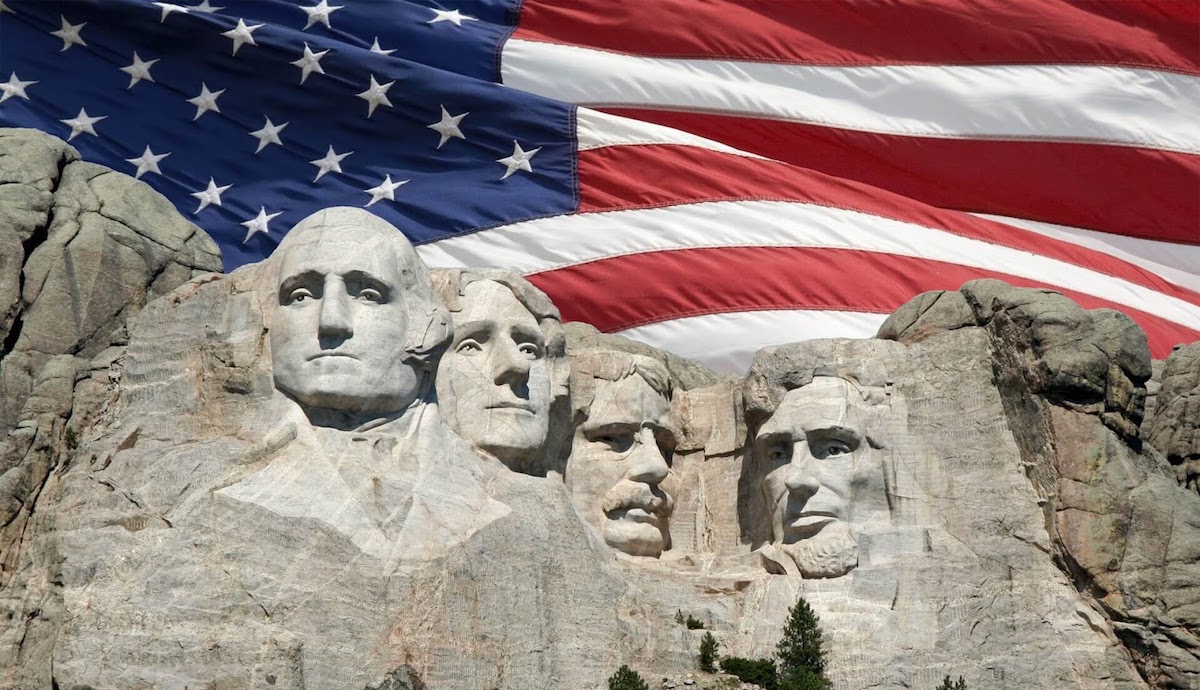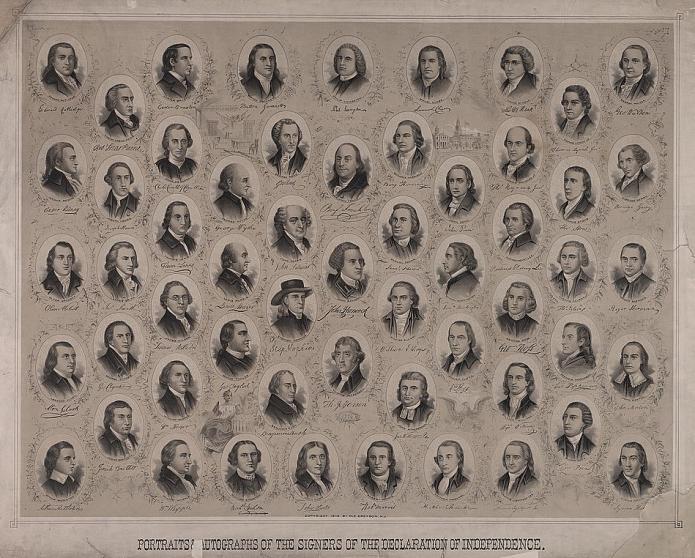The Author and Signers of the Declaration of Independence from Vol. 186, No. 622
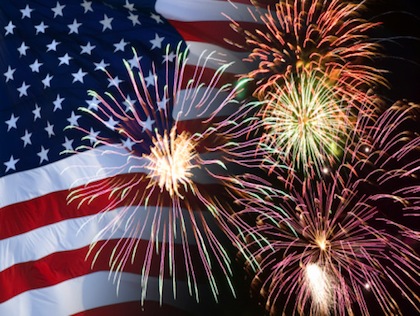
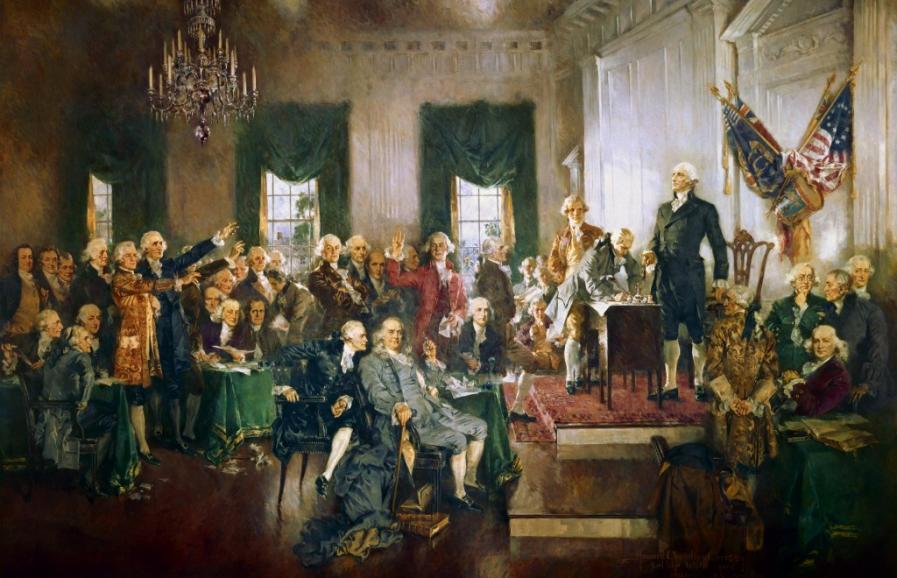
It is common to think of the Declaration of Independence as a highly speculative document; but no one can think so who has read it. It is a strong rhetorical statement of grievances against the English government. It does, indeed, open with the assertion that all men are equal and that they have certain inalienable rights, among them the right to life, liberty and the pursuit of happiness. It asserts that governments were instituted to secure these rights, and can derive their just powers only from the con sent of the governed; and it solemnly declares that "whenever any government becomes destructive of these ends, it is the right of the people to alter or to abolish it, and to institute a new gov ernment, laying its foundation in such principles, and organizing its powers in such forms, as to them shall seem most likely to effect their safety and happiness." But such sentences do not afford a general theory of government to formulate policies upon. No doubt we are meant to have liberty ; but each generation must form its own conception of what liberty is. No doubt we shall always wish to be given leave to pursue happiness as we will, but we are not yet sure where or by what means we shall find it. That we are free to adjust government to these ends we know; but Mr. Jefferson and his colleagues in the Continental Congress prescribed the law of adjustment for no generation but their own. They left us to say whether we thought the government they had set up was founded on "such principles," its powers organized in " such forms " as seem to us most likely to effect our safety and happiness. They do not attempt to dictate the aims and objects of any generation but their own.
We are justified in looking back with a great satisfaction to the documents which spoke the purposes of the Revolution and formed the government which was to succeed to the authority of King and Parliament. They speak the character of the men who drew them as clearly as they speak the circumstances of the time. The fifty-six men who put their names to the Declaration of In dependence were not of the sort to meet acute crises in affairs with treatises on government. They were accustomed to the practice of business, and as apt to go straight to their point as any minister oversea. They were of every calling:—men were apt in that day of beginnings to have been of several callings by the time they reached middle life. Lawyers predominated among them, like James Wilson and John Adams and Edward Rutledge; but there were merchants too, like Robert Morris of Philadelphia and John Hancock of Boston; country gentlemen of large affairs, like Benjamin Harrison and Charles Carroll; and physicians, like Benjamin Rush and Lyman Hall. Thomas Jefferson and Benjamin Franklin we cannot classify: each stands unique and individual, a man separated by genius. Hard-headed English men, like Button Gwinnet of Georgia; and men sure of their rights because they were Irishmen, born with an inclination to assert them, like James Smith and George Taylor, added to the handsome variety; and a man like John Witherspoon, the indom itable president of Princeton, turned statesman to authenticate the teaching he was giving lads like James Madison and Harry Lee, contributed his own flavor of unhesitating directness, both of thought and speech. Only Scotchmen seem able to be formi dable at once in philosophy and in fact. The only professional politician among them was Samuel Adams, at home a master of agitation and political organization, but in the Congress quiet enough, a statesman of grievances, not of measures.
The genius of the new republic was expressed among these men, as it was expressed eleven years later among the men who framed the Constitution of the United States, by practical capacity, thoughtful, indeed, and holding at its heart clear-cut, un mistakable conceptions of what the government of free men ought to be, but not fanciful, a thing of action rather than of theory, suited to meet an exigency, not a mere turn in debate. We do not live in times as critical as theirs. We are not engaged in making a nation, but we are engaged in purging and preserving a nation, and an analysis of our duty in the situation in which we stand is in many ways more difficult than that which they attempted, the remedies to be applied lie less obvious to our choice. They gave us the nation: we owe them, not empty eulogy, but the sincere flattery of imitation. If we are their descendants, either in blood or in spirit, let us distinguish our ancestry from that of others by clear wisdom in counsel and fearless action taken upon plain principle.
No one now needs to be told what the principle of the American Revolution was: it was the principle of individual liberty. Though the men who signed the Declaration of Independence were no theorists but practical statesmen, a very definite conception of what the government of enlightened men ought to be lay back of everything they did, and that conception they held with a passionate conviction. They believed government to be a means by which the individual could realize at once his responsibility and his freedom from unnecessary restraint. Government should guard his rights, but it must not undertake to exercise them for him.
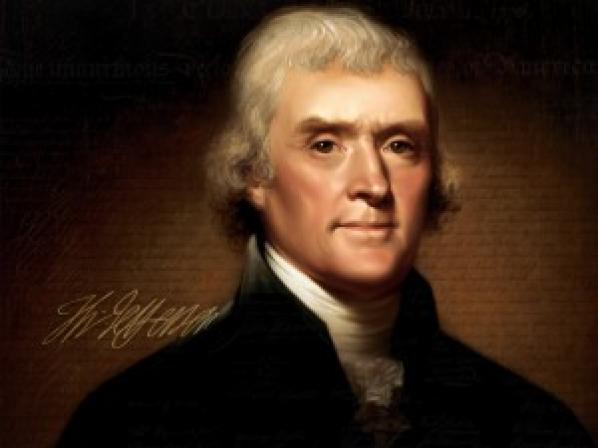 No doubt the most interesting spokesman of that conception was that eminent Virginian, that unique and singular man, the author of the Declaration of Independence. No doubt Thomas Jefferson was an astute politician; no doubt he was a most inter esting philosopher; certainly he was a most inscrutable man. It would be impossible to make a consistent picture of him that should include all sides of his varied genius and singular char acter. He took leave, like all great men of affairs, to be incon sistent and do what circumstances required, approaching the perfection of theory by the tedious indirections of imperfect practice. But the main base of his theories was the base upon which all thoughtful men in his day founded their thinking about politics and intended to found their measures also. He believed consistently and profoundly in the right of the individual to a free opportunity and in the right of the nation to an unhampered development, and was ready to support every law or arrangement which promised to secure the people against any sort of monopoly in taking part in that development. Moreover, he knew that government was a thing conducted by individuals, men whose weaknesses and passions did not differ from the weaknesses and passions of the men whom they governed; and that government 25 must operate upon individuals, whose tangled rights and opportunities no government could look into too curiously or seek to control too intimately without intolerable consequences of paternalism and petty tyranny. Every man who signed the Decla ration of Independence believed, as Mr. Jefferson did, that free men had a much more trustworthy capacity in taking care of themselves than any government had ever shown or was ever likely to show in taking care of them; and upon that belief the American government was built.
No doubt the most interesting spokesman of that conception was that eminent Virginian, that unique and singular man, the author of the Declaration of Independence. No doubt Thomas Jefferson was an astute politician; no doubt he was a most inter esting philosopher; certainly he was a most inscrutable man. It would be impossible to make a consistent picture of him that should include all sides of his varied genius and singular char acter. He took leave, like all great men of affairs, to be incon sistent and do what circumstances required, approaching the perfection of theory by the tedious indirections of imperfect practice. But the main base of his theories was the base upon which all thoughtful men in his day founded their thinking about politics and intended to found their measures also. He believed consistently and profoundly in the right of the individual to a free opportunity and in the right of the nation to an unhampered development, and was ready to support every law or arrangement which promised to secure the people against any sort of monopoly in taking part in that development. Moreover, he knew that government was a thing conducted by individuals, men whose weaknesses and passions did not differ from the weaknesses and passions of the men whom they governed; and that government 25 must operate upon individuals, whose tangled rights and opportunities no government could look into too curiously or seek to control too intimately without intolerable consequences of paternalism and petty tyranny. Every man who signed the Decla ration of Independence believed, as Mr. Jefferson did, that free men had a much more trustworthy capacity in taking care of themselves than any government had ever shown or was ever likely to show in taking care of them; and upon that belief the American government was built.
So far as the Declaration of Independence was a theoretical document, that is its theory. Do we still hold it? Does the docrine of the Declaration of Independence still live in our principles of action, in the things we do, in the purposes we applaud, in the measures we approve? It is not a question of piety. We are not bound to adhere to the doctrines held by the signers of the Declaration of Independence: we are as free as they were to make and unmake governments. We are not here to worship men or a document. But neither are we here to indulge in mere rhetorical and uncritical eulogy. Every Fourth of July should be a time for examining our standards, our purposes, for deter mining afresh what principles and what forms of power we think most likely to effect our safety and happiness. That and that alone is the obligation the Declaration lays upon us. It is no fetish; its words lay no compulsion upon the thought of any free man, but it was drawn by men who thought, and it obliges those who receive its benefits to think likewise.
What do we think of our safety and of our happiness,— of the principles of action and the forms of power we are using to se cure them ? That we have come to a new age and a new attitude towards questions of government, no one can doubt,—to new definitions of constitutional power, new conceptions of legislative object, new schemes of individual and corporate regulation. Upon what principle of change do we act? Do we act upon definite calculations of purpose, or do we but stumble hesitatingly upon expedients? To what statements of principle would a declaration of our present reasons and purposes commit us before the world? To those the signers of the Declaration of Independence would have avowed, or to others very different and not at all novel in the political history of the world? This is not a party question: there is apparently, for the moment, little difference between parties in regard to it. It is a national question, a question touching the political principles of America. We ought not to hesitate to avow a change, if change there is to be; but we should be ashamed to act in radical fashion and not know that there was a change. Precedent is at least a guide by which to deter mine our direction.
There is much in our time that would cause men of the principles of Mr. Jefferson the bitterest disappointment. Individual opportunity is not unhampered. The nation has had in every respect an extraordinary material development, but the chief in strumentalities of that development have been at least virtually monopolized, and the people, though they created the opportunity and contributed the labor, have not shared the benefits of that development as they might have shared them. This has not been due to the operation of our institutions; it has been due to the operation of human nature, which is alike under all institu tions and which has perhaps had freer play under our institutions than it would have had under any others—as Mr. Jefferson wished that it should have.
Moreover, there is no doubt that we shall set all things right: but it is important we should inquire the way, and not set them right by methods which may bring new trouble upon us, if the old methods will suffice for our safety and happiness. What were those methods? What was the spirit of the nation at its inception,—in 1776 when the great declaration of its intentions was framed, and in 1787 when it made de liberate choice of its form of government? There is no difficulty in answering these questions; the answers to them have lain before us since we were children, in every book that spoke of our history or of our character as a nation. Let us use them as a mirror into which to look, in order to make test whether we shall recognize our own features, disguised as they are by change of circumstance, in our present habit, as we live. The most obvious characteristic of the men who gave the nation voice and power was their profound regard for law. That conviction is upon the surface and at the heart of everything they said or did in support of their purpose. They did not fling off from the mother country because they wanted new rights, but because the rights they had time out of mind enjoyed as free men under the laws and constitution of England, and the rights they had been promised as colonists in a new country with a life of its own, had been arbitrarily disregarded and withdrawn, and they knew not what ancient and undoubted liberties and privileges they could count upon. They wanted, not less law nor even better law, but law they could rely upon and live by. Their case was a case for legality, for the established understandings of law upon which they knew that liberty had immemorially depended. There is no longer any need to debate what liberty is. The question has been tried out again and again, both in theory and in practice,—in the council-chamber and on the field of battle, where the air was calm and where it thrilled with passion,—and by no race more thoroughly than by that from which we derive our law; and we may say that we know. Affairs swing this way and that, sometimes with revolutionary force, as interests wage their war for advantage, but we know where the midpoint of perfect poise lies and seek constantly to turn our lines of policy towards it. Liberty consists in the best possible adjustment be tween the power of the government and the privilege of the individual; and only law can effect that adjustment. Where liberty is there must be a perfect understanding between the individual and those who would control him; and if either he or they can disregard the understanding, there is license or anarchy. It was in that knowledge that the founders of our government loved the law.
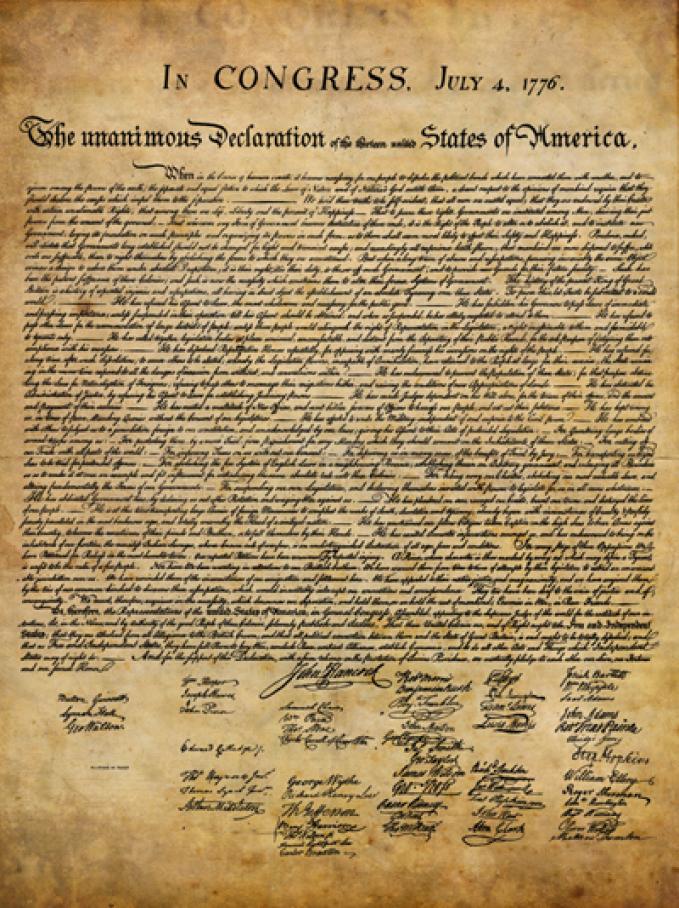 These same men, therefore, who revered law and depended upon its grants and definitions for their security and happiness, were deeply jealous of too much law. It is easy to talk of " society," of " communities," of " the people," but the fact is that these are but names we give to bodies made up of individuals. It is easy, also, to speak of "governments " as if they were forces set apart from us and above us; but governments also consist of individuals of like nature with ourselves. That is the reason, the very interesting and conclusive reason, which the founders of our government needed not to have explained to them, why control of our affairs by the government and the regulation of our relations to each other by the law are two very different things, and lead to sharply contrasted results. The history of liberty in the past, from which we may certainly gather some in timation of its history in the future, has been a history of resist ance to too much governmental control, and the careful discovery of the best forms and the most prudent degrees of legal regulation ; and it is clear that the law which the signers of the Declaration of Independence loved was something which they regarded, not as a body of powers possessed by a government, but as a body of rules regulating the complex game of life, no more favorable to control than was necessary to make it a safeguard of individual privilege and a guarantee of equal rights. Too much law was too much government; and too much government was too little individual privilege,—as too much individual privilege in its turn was selfish license.
These same men, therefore, who revered law and depended upon its grants and definitions for their security and happiness, were deeply jealous of too much law. It is easy to talk of " society," of " communities," of " the people," but the fact is that these are but names we give to bodies made up of individuals. It is easy, also, to speak of "governments " as if they were forces set apart from us and above us; but governments also consist of individuals of like nature with ourselves. That is the reason, the very interesting and conclusive reason, which the founders of our government needed not to have explained to them, why control of our affairs by the government and the regulation of our relations to each other by the law are two very different things, and lead to sharply contrasted results. The history of liberty in the past, from which we may certainly gather some in timation of its history in the future, has been a history of resist ance to too much governmental control, and the careful discovery of the best forms and the most prudent degrees of legal regulation ; and it is clear that the law which the signers of the Declaration of Independence loved was something which they regarded, not as a body of powers possessed by a government, but as a body of rules regulating the complex game of life, no more favorable to control than was necessary to make it a safeguard of individual privilege and a guarantee of equal rights. Too much law was too much government; and too much government was too little individual privilege,—as too much individual privilege in its turn was selfish license.
Now let us hold this mirror up to ourselves and see if we recognize in it the image of our own minds. In that mirror we see a conception of government which frankly puts the individual in the foreground, thinking of him as the person to be at once pro tected and heartened to make a free use of himself, the responsible administrator of his own liberties and his own responsibilities, and of government as the umpire; and which depends upon law for nothing else than a clear establishment of the rules of the game. That is hardly our notion. We are indeed in love with law,—more in love with it than were the makers of the gov ernment,—but hardly in love with it as an instrument of mere regulation. For us it is an instrument of reconstruction and control. The individual has eluded us, we seem to say, has merged and hidden himself in corporations and associations, through the intricacies of whose structure we have not time to thread our way in search of him; we will, therefore, meet the circumstances as we find them, treat him not as an integer, but as a fraction, and deal with the association, not with the individual. We will prohibit corporations to do this or to do that, to be this or to be that, and punish them either with fine or with dissolution if they disobey. The morals of business and of law we will frankly accept as corporate morals, not individual morals, and we will not set these corporations, these new individuals of our modern law, to watch and sue one another for infractions of the law: they might combine, and there is no sufficient motive for them to check one another in illegal practices. Neither can we depend upon individuals. They are now too minute and weak. The moralizer and disciplinarian of corporations can, in the nature of the case, be none other than the government itself, and, because corporations spread from State to State, can be none other than the Government of the United States.
It is amusing how we extend this new theory of law into some of the new details of our life,—extend it, at any rate, in our thinking if not in our legislation. We hear it suggested on every side, for example, that the true and effective way to stop the driving of automobiles along our highways at excessive rates of speed is to lock the automobile itself up whenever the speed laws are violated, so that for a long time at least it may not be used again. I suppose we shall some day see officers of the law arresting electric ears and steam locomotives for the offences which their motormen and engineers have committed, and the faults of men everywhere corrected by locking up their tools. The trouble is that the tools are wanted, and the lives of all of us are incon venienced if they are taken away. Even the automobile is useful, when used with caution and sanity. And there is exactly the same serious trouble about the way we now deal with our corporations, punishing inanimate things instead of persons. When we fine them, we merely take that much money out of their business,—that is, out of the business of the country,—and put it into the public treasury where there is generally already a surplus, and where it is likely to lie idle. When we dissolve them, we check and hamper legitimate undertakings and embarrass the business of the country much more than we should embarrass it were we to arrest locomotives and impound electric cars, the necessary vehicles of our intercourse. And all the while we know perfectly well that the iniquities we levy the fines for were con ceived and executed by particular individuals who go unpunished, unchecked even in the enterprises which have led to the action of the courts. And so from one body of hidden individuals we turn to another, and say, " Go to, we will instruct the Government to regulate this thing in place of boards of directors: if necessary, we will instruct the Government to transact the business which these corporations have made the Government interfere with on account of bad practices. We shall then have honesty: for are not the men who compose the Government men of our own choice, our servants for our common business?"
It needs no prophet to predict that too much government lies that way, and nothing but too much government,—no increased efficiency or improved business to be had in the bargain. And beyond too much government lies the old programme, repeated and repeated again and again every time the like thing has happened: a new struggle for liberty, a new eagerness for emanci pation from a law that dictates into the freedom of a law that umpires. No doubt the old cycle must some time be gone through again; but we ought not to be the people to go through it: we have had too much light: we have furnished the world with too much doctrine and example in this kind: we cannot afford to illustrate our own principles by our mistakes, after having illustrated them by our successes. Shall we return to cur old standards, or shall we adopt arrangements which we know our children will be obliged to reject?
Can we return to our old standards, in this strange and altered day when all the face of circumstance seems changed and nothing remains as it was in the time when the government was hopefully set up? Undoubtedly we can. Not everything is changed : the biggest item of all remains unaltered, human nature itself; and it is nothing to daunt a free people,—free to think and free to act,—that the circumstances in which that old, unalterable nature now expresses itself are so complex and singular. The difficulty of the task is part of its desirability: it is a new enter prise upon which to stretch our powers and make proof of our sanity and strength. It is the task of making a new translation of our morals into the terms of our modern life, where individuality seems for the time being lost in complex organization, and then making a new translation of our laws to match our new translation of morals. It is the task of finding the individual in the maze of modern social and commercial and industrial conditions ; finding him with the probe of morals and with the probe of law. One really responsible man in jail, one real originator of the schemes and transactions which are contrary to public interest legally lodged in the penitentiary, would be worth more than one thousand corporations mulcted in fines, if reform is to be genuine and permanent.
It i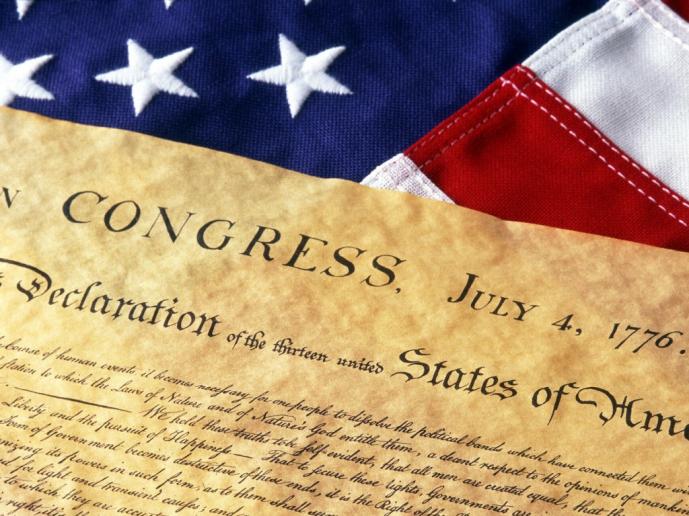 s only in this way that we can escape socialism. If the individual is lost to our law, he is lost to our politics and to our social structure. If he is merged in the business group, he is merged in the state, the association that includes all others. Unless we can single him out again and make him once more the subject and object of law, we shall have to travel still further upon the road of government regulation upon which we have al ready travelled so far; and that road leads to state ownership. We have not even tried to extend the old roads into this vast new area of business and of corporate enterprise, which recent years have seen opening up like a new continent of mind and achievement, and until we have tried, we cannot claim legitimate descent from the founders of the government. We have abandoned their principles without even making trial of their efficacy in a new situation.
s only in this way that we can escape socialism. If the individual is lost to our law, he is lost to our politics and to our social structure. If he is merged in the business group, he is merged in the state, the association that includes all others. Unless we can single him out again and make him once more the subject and object of law, we shall have to travel still further upon the road of government regulation upon which we have al ready travelled so far; and that road leads to state ownership. We have not even tried to extend the old roads into this vast new area of business and of corporate enterprise, which recent years have seen opening up like a new continent of mind and achievement, and until we have tried, we cannot claim legitimate descent from the founders of the government. We have abandoned their principles without even making trial of their efficacy in a new situation.
The elaborate secret manipulations by means of which some of our so-called " financiers " get control of a voting majority of the stock of great railroad or manufacturing companies, in order to effect vast combinations of interests or properties, incidentally destroying the value of some stocks and fictitiously increasing the value of others, involve first or last acts which are in effect sheer thefts, making the property of thousands of stockholders so much waste paper, or arbitrarily decreasing the relative earn ing capacity of corporations for a share in whose earnings thousands of men and women had paid hard-earned cash; but we have never sought to bring the details of these transactions within the definitions of criminal law. Not to do so is like overlooking the highway robberies of the mediaeval barons. Moreover, it leaves an unjust stain of popular suspicion upon transactions similar to all outward appearance but conceived in justice and fair dealing. Every corporation is personally directed either by some one dominant person or by some group of persons, in re spect of every essential step of its policy: somebody in particular is responsible for ordering or sanctioning every illegal act com mitted by its agents or officers: but neither our law of personal damages nor our criminal law has sought to seek the responsible persons out and hold them individually accountable for the acts complained of. It would require a careful hand and a minute knowledge of existing business conditions to draw the law, but statutes could oblige every corporation to make such publicanaly sis of its organization as would enable both private individuals and officers of the law to fix legal responsibility upon the right person. We have never attempted such statutes. We indict corporations themselves, find them guilty of illegal practices, fine them, and leave the individuals who devised and executed the illegal acts free to discover new evasions and shape the policy of the corporations to practices not yet covered by the prohibitions of law. We complain that directors are too often mere names upon a list, and that even when they attend the meetings of the boards to which they belong they give no real heed to what is done, and allow some committee to have its own way unques tioned; and yet the law could easily make them responsible, per sonally and individually responsible, to any extent it chose, for acts which their votes authorized, and could thereby quickly change their nominal participation in the affairs of the corporations they pretend to govern into real participation and watchful oversight. Let every corporation exactly define the obligations and powers of its directors, and of its several officers and man agers, and then let the law fix responsibility upon them ac cordingly.
I need not multiply examples. We know that the vast majority of our business transactions are sound, the vast majority of our business men honest. In order to clear the air of unjust sus picion, give credit where credit is due, condemnation where con demnation, let us set ourselves to work to single out individuals and fix personal responsibility, and we shall both lighten the difficulty of government and make a new platform of life. Governmental supervision there must be, but of the kind there has always been in District Attorneys' offices; not the kind that seeks to determine the processes of business, but the kind that brings home to individuals the obligations of the law.
It would be a happy emancipation. We should escape the burden of too much government, and we should regain our self respect, our self-confidence, our sense of individual integrity. We should think straight with regard to the moral aspect of conduct, and we should escape perplexity with regard to our political future. We should once more have the exhilarating freedom of governing our own lives, the law standing as umpire, not as master.
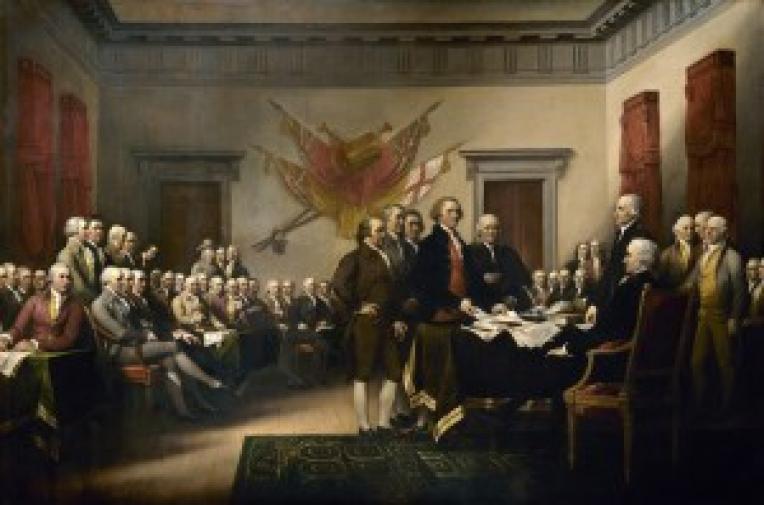 By such means we should prove ourselves indeed the lineal descendants of the signers of the Declaration of Independence. It is fashionable, as it is easy, to talk about Jeffersonian principles of government. Men of all kinds and of the most opposite doctrines call themselves by Mr. Jefferson's name; and it must be admitted that it is possible to turn many of Mr. Jefferson's opinions this way or that. But no man's name settles any principle ; and Mr. Jefferson was originating no novel doctrines, announcing no discoveries in politics, when he wrote the Declaration of dependence. What it contains is in fact the commonplace of political history. There can be no liberty if the individual is not free: there is no such thing as corporate liberty. There is no other possible formula for a free government than this: that the law must deal with individuals, allowing them to choose their own lives, under a definite personal responsibility to a com mon government set over them ; and that government must regu late, not as a superintendent does, but as a judge does; it must safeguard, it must not direct.
By such means we should prove ourselves indeed the lineal descendants of the signers of the Declaration of Independence. It is fashionable, as it is easy, to talk about Jeffersonian principles of government. Men of all kinds and of the most opposite doctrines call themselves by Mr. Jefferson's name; and it must be admitted that it is possible to turn many of Mr. Jefferson's opinions this way or that. But no man's name settles any principle ; and Mr. Jefferson was originating no novel doctrines, announcing no discoveries in politics, when he wrote the Declaration of dependence. What it contains is in fact the commonplace of political history. There can be no liberty if the individual is not free: there is no such thing as corporate liberty. There is no other possible formula for a free government than this: that the law must deal with individuals, allowing them to choose their own lives, under a definite personal responsibility to a com mon government set over them ; and that government must regu late, not as a superintendent does, but as a judge does; it must safeguard, it must not direct.
These thoughts ought still to linger in the very air of this place. The first English settlers came here while the breath of the " spacious times of great Elizabeth " was still in every man's lungs, and the quickening impulse of enterprise and adventure. The great Tudor queen had known how to deal with mettlesome men: she had given them leave to do what they pleased in the world, if only they would remember always her sovereignty and their allegiance, and deal always with each other's rights as the law commanded. The things which government fostered and sought to manage never throve in America, amongst the French colonists in Canada and the South, or amongst the Dutch and Danes on the North and South rivers; but the free English energy throve like a thing bred for the wilderness. That breath of individual liberty has never gone out of our lungs. Too much government still suffocates us. We do not respect ourselves as much as fractions as we do as integers. The future, like the past, is for individual energy and initiative; for men, not for corporations or for governments; and the law that has this ancient principle at its heart is the law that will endure.
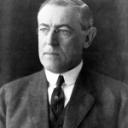 By: Woodrow Wilson
By: Woodrow Wilson
President of Princeton University, Sept. 1907.
You can find/print the original document from JSTOR.
Recommended
Nor’easter
Post-Op Appointment With My Father
Cedar Valley Youth Poet Laureate | Fall 2024 Workshop


